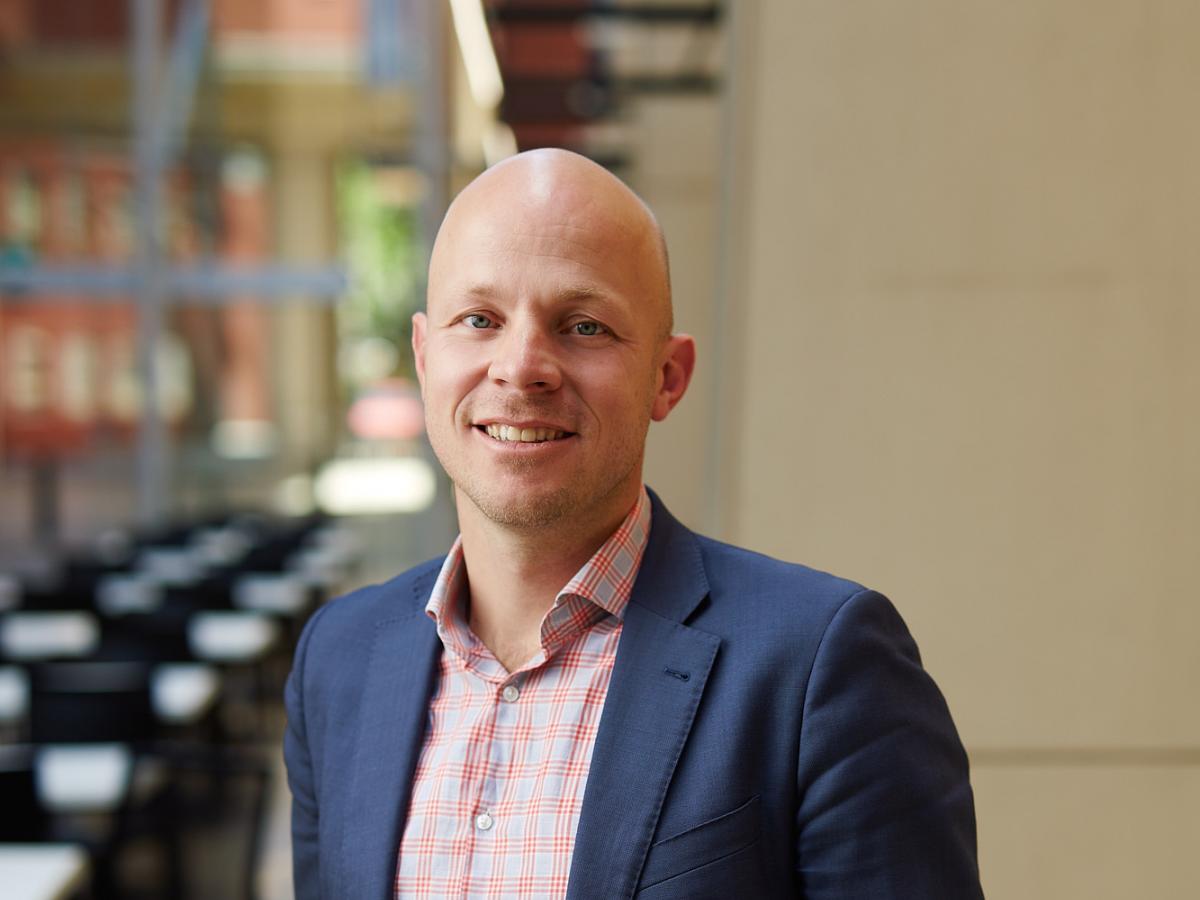AI ‘assistant’ to help busy doctors - and their patients

Associate Professor Johan Verjans.
An AI-powered clinical case note tool is being developed to help tackle doctor admin workload and improve patient care.
By Kurtis Eichler
Like a lot of clinicians, Associate Professor Johan Verjans sometimes feels like he’s drowning in paperwork.
The clinical and research cardiologist is among many doctors spending up to two hours every day completing administrative duties, something that’s leading to higher costs and a loss in productivity in health care delivery.
“Doctors identify that paperwork and other admin is a significant source of frustration,” Dr Verjans says.
“We spend up to 25 per cent of our time performing bureaucratic tasks and that’s one of the main reasons cited for dissatisfaction with our work.”
Verjans, who also leads a medical machine learning team at the University of Adelaide's Australian Institute for Machine Learning (AIML), says up to 25 per cent of doctor burnout cases can be linked to the burden of administrative work.
To help combat this, Verjans and his team at AIML are now developing an AI-powered case note generator that could reduce the time spent on admin and give doctors more time with their patients.
Funded by a Health Translation SA Medical Research Future Fund Catalyst Grant, the prototype will use natural language processing to auto-populate a patient’s case notes, transcribe doctor-patient consults and summarise pertinent medical information.
Unlike similar tools in development in the US and Europe, this model will be trained on South Australian medical data and adhere to Australian privacy laws.
South Australia is well-placed to be a global leader in medical AI, as the state has a trove of valuable digital health assets—such as medical records, imaging and pathology data—and is a known for both its medical and AI research capability.
Verjans’s team will use unsupervised learning and extractive summarisation—a technique where the AI model learns to pick the most critical sentences and phrases from a body of text—to train the prototype.
They’ll then use a type of AI called reinforcement learning to fine-tune the tool, getting feedback from doctors to assess the accuracy of the AI-produced case note summaries.
Dr Verjans said there is “very good evidence” the tool will be feasible, and form part of the new standard of medical technology, pointing to French startup that last month started rolling out its AI clinical scribe software to doctors in California.
One feasibility study found while many systems had been introduced to try and reduce the burden of paperwork, including using templates in electronic medical records, these had proven to have significant shortcomings.
Verjans pointed to other studies which have shown a digital scribe can be two times faster than typing during physical exams.

Some doctors spend up to two hours every day completing administrative tasks, leading to higher costs and a low productivity in health care delivery. Photo: iStock.
“In essence, an autopilot AI tool that acts as a digital scribe can streamline processes, reduce clinician stress, and improve patient outcomes,” Verjans said.
He said if the prototype was successful, there would be scope to scale-up the model to extend its capabilities.
“The system’s capability to automatically schedule follow-ups, order tests, and send concise summaries to GPs and patients present further time-saving and cost reducing opportunities,” he said.
The project is being delivered in collaboration with the Central Adelaide Local Health Network (CALHN) and Calvary Amplar Health.
Dr Verjans hopes to have a prototype developed by late 2024, and a fully operational AI model by late 2026.
“It’s a practical solution with clear financial benefits for the health sector.”
‘Development of a Prototype for Automated Clinical Casenote Generation’ received $55,788 from the Health Translation SA (HTSA) Medical Research Future Fund (MRFF) Catalyst Grant Scheme, which is delivered in partnership with The Hospital Research Foundation Group and the Women’s & Children’s Hospital Foundation.
